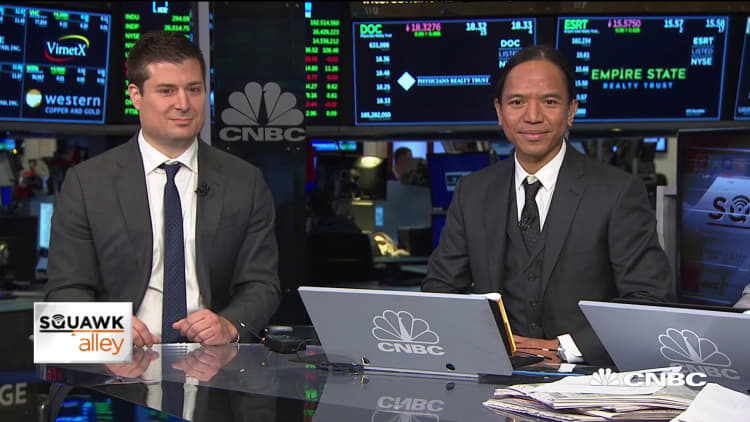Poshmark wants to be more than just an online marketplace for used clothes and purses.
The retail resale platform announced Tuesday it's getting into home decor, taking on the likes of Wayfair and Rent the Runway, which also recently started renting home goods like throw pillows and blankets.
"As we launch into home goods, a lot of that is centered around the fact that our community is leading us there," CEO and founder Manish Chandra said. "Our vision is to become the social commerce platform of choice."
The expansion comes as more and more shoppers are turning to secondhand marketplaces like Poshmark, Rebag and TheRealReal to buy used Louis Vuitton handbags or Nike sneakers at lower prices.
The secondhand apparel market in the U.S. was worth $24 billion in 2018, compared with $35 billion for fast-fashion companies like H&M and Zara, according to data compiled by ThredUp and GlobalData Retail. But by 2028, the used fashion market is set to jump in value to $64 billion, while fast fashion will only reach $44 billion, the firms said.
Poshmark's new home vertical will be for things like wall art, pillows, candles and other smaller home goods, but not bulky furniture, Chandra said. Poshmark is still working on perfecting its logistics to be able to handle and ship heavier items, he said.
Founded in 2011, California-based Poshmark allows users to create an account and then either buy items from other users or try to sell unwanted items — apparel, handbags, shoes, jewelry and even makeup — themselves. Last May, the company said sellers on its platform had earned a total of $1 billion since Poshmark's inception, a major milestone. It said it was targeting annual revenue of nearly $150 million. It keeps 20% of each transaction. The company declined to comment on how Poshmark ended 2018.
In being a budding platform for "social commerce," Poshmark allows users to chat among themselves about items. It even holds meet-ups in bigger cities like New York, called "Posh Parties," where users can come together over snacks and drinks, meet in real life and show off items they're trying to sell.
One of Poshmark's competitors, Mercari, went public in a $1.2 billion debut in Japan last year, sparking a greater conversation around Chandra's company one day pursuing an IPO. TheRealReal filed for an initial public offering last month.
Tennis superstar and fashion icon Serena Williams notably recently joined Poshmark's board.
"We've been seeing the momentum for the last few years ... with the scaling of our business," Chandra said. "I think there's a major ... shift in how consumers are interacting with everything."
Poshmark has raised almost $160 million. Its last round, a Series D in November 2017, was for $87.5 million and valued the company at nearly $600 million. Major investors include Mayfield, GGV Capital, Menlo Ventures and Union Grove Venture Partners.



